Canonical metric names
- Effective Date: June 2020
- Announcement Date: April 2020
OpsRamp is migrating its metric naming convention.
This change brings greater visibility into the service being monitored and provides a consistent model for referencing metrics. Although this change is currently limited to AWS and GCP resources, OpsRamp iterates on all metrics over time to get them into the same model.
For example:
- Old metric convention:
aws.write.throughput - New metric convention:
aws_redshift_WriteThroughput
Behavior changes
For metrics that are common across multiple resources, the metrics are separated using the new notation and placing the metrics in their respective cloud templates.
Graphing impact
- For resources where the existing metric is updated to the new convention, metric data continues to plot.
- For resources where a new metric is added, the old graph has the old metric name with the metric collection stopping for the old metric. The new metric graph populates with the updating metric name convention.
Alert impact
Any existing alert based on an old metric persists. However, heals/critical alerts are not processed after the change. Alerts with old metric notation are not updated and are not updated with new metric notation.
Create user from email request integrations
- Effective Date: June 2020
- Announcement Date: March 2020
The option for creating new users from email request integrations is deprecated and is not available after the effective date.
Information about the requestor is available in the comment section and is searchable on the Email-ID.
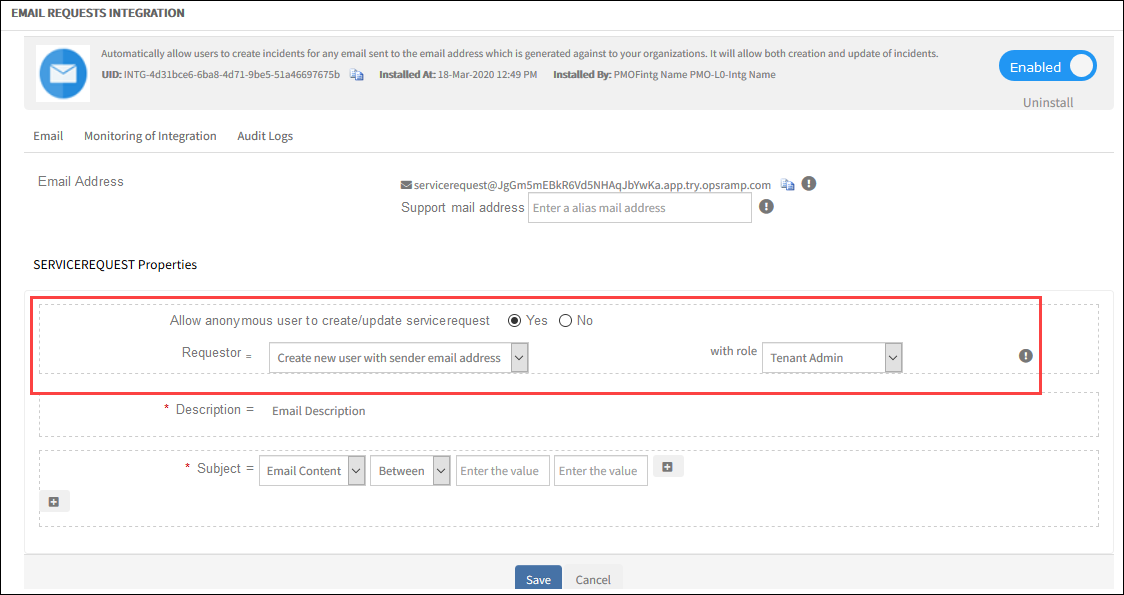
Custom integrations with no associated role
- Effective Date: July 2020
- Announcement Date: November 2019
Starting with OpsRamp 5.4.0, custom integrations required that a role be selected. Integrations defined before OpsRamp 5.4.0 will no longer function.
Action
You must define new custom integrations.Execution order in device management policies
- Effective Date: June 2020
- Announcement Date: September 2019
Users can no longer assign an Execution Order to Device Management Policies. After this change, Device Management Policies continues to function normally, and there is no noticeable changes in behavior.
Legacy synthetics
- Effective Date: July 2020
- Announcement Date: November 2016
Ping, URL and DNS monitors are moved to Synthetic monitoring. See Synthetics for a workaround.
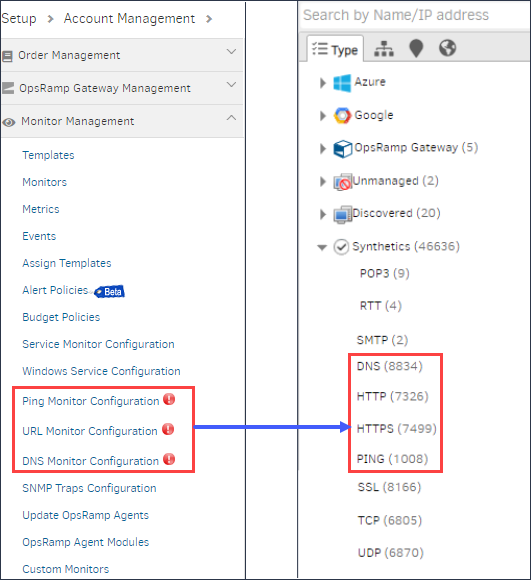
Mac agents
- Effective Date: June 2020
- Announcement Date: December 2019
Agent support on Macintosh operating system (Mac OS) is stopped.
Neustar integration
- Effective Date: June 2020
- Announcement Date: February 2020
The Neustar monitoring integration is deprecated and unavailable after the effective date. As an alternative, configure a webhook-based custom integration.
NodeJS synthetics
- Effective Date: June 2020
- Announcement Date: November 2019
Users is not able to create custom HTTPs synthetics using Java script. As an alternative, use the Python Selenium script or leverage the Selenium web recorder.
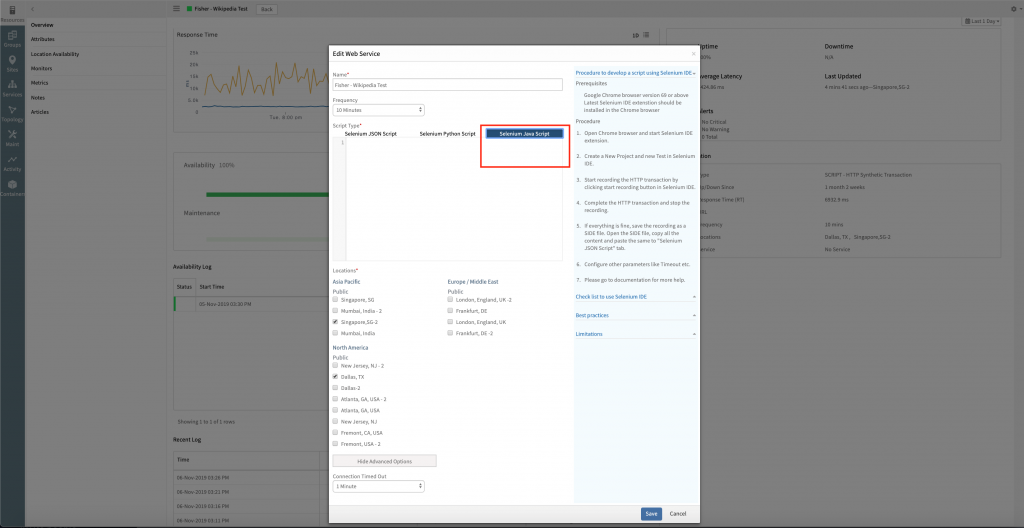
Node.JS deprecation
Permanent suppress action on alerts
- Effective Date: June 2020
- Announcement Date: February 2020
The Permanent Suppress action on alert is deprecated and is no longer available after the effective date. Un-assigning monitors on the resource is the recommended approach to stop monitoring a resource.
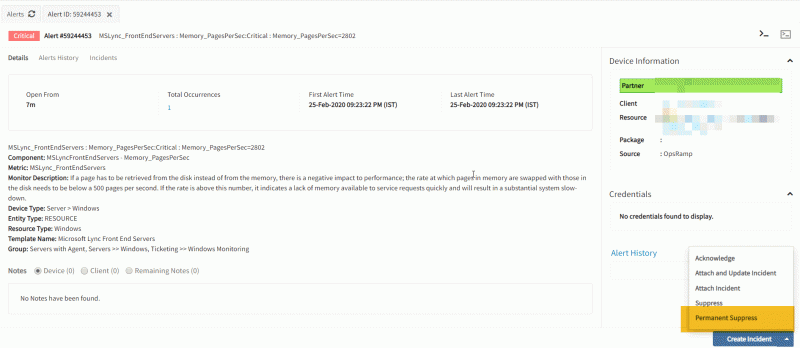
Permanent Suppress
Post-install access to integration key and secret
- Effective Date: June 2020
- Announcement Date: February 2020
Keeping with industry standard security practices, the secret generated for an integration isThe secret becomes unavailable after navigating away from the integration installation window, .
Copy and save the secret for later use. If the integration secret is misplaced (or not copied), re-generate a new secret from the UI.
This change only impacts integrations that are newly installed after the effective date.
Existing integrations function as is.
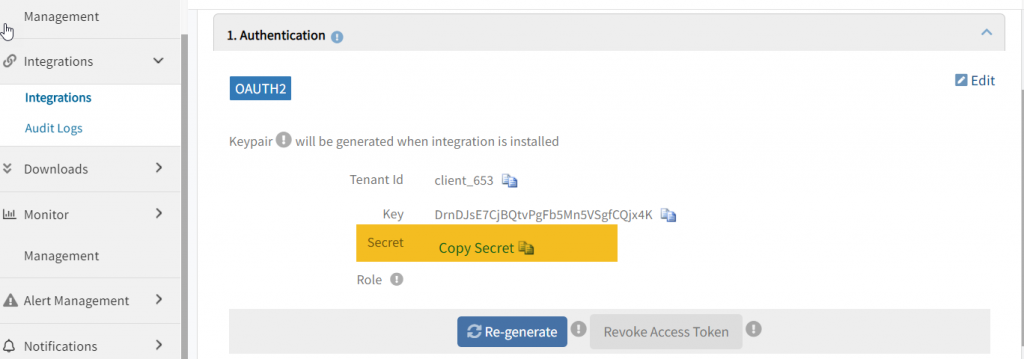
Runbooks in specific languages
- Effective Date: June 2020
- Announcement Date: February 2020
Support for Runbook Automation (RBA) scripts in the following languages is deprecated and is not available as an option after the effective date:
- Windows: Windows Batch file, Windows Commands, Windows Visual Basic, Windows EXE, Windows MSI, Windows Download.
- Linux: Perl.
Jobs that are configured to run RBA scripts in these deprecated languages do not work after the effective date.
RBA scripts in the following languages continues to be supported:
- Windows: Windows PowerShell.
- Linux: Python and Bash.
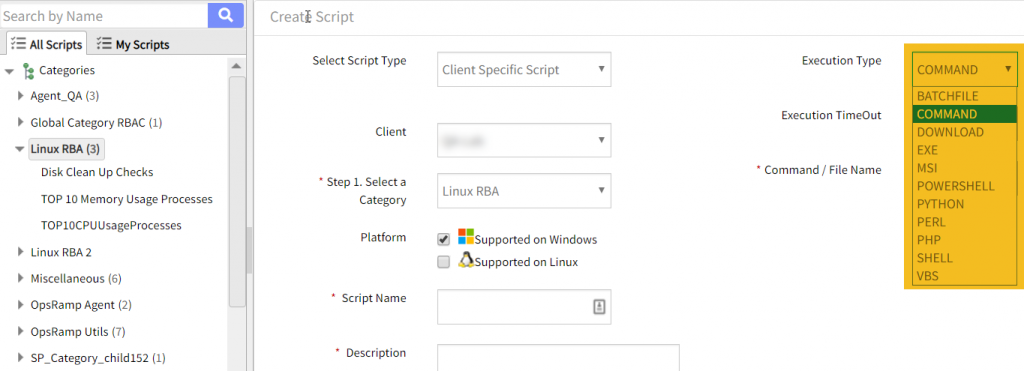
Service monitor configuration
- Effective Date: June 2020
- Announcement Date: February 2020
Service monitor configuration section under the Setup module is deprecated and is no longer available as of the effective date.
The service monitor configuration page and all the related entries are removed from the platform.
As a replacement, you need to leverage the existing template-based monitoring.